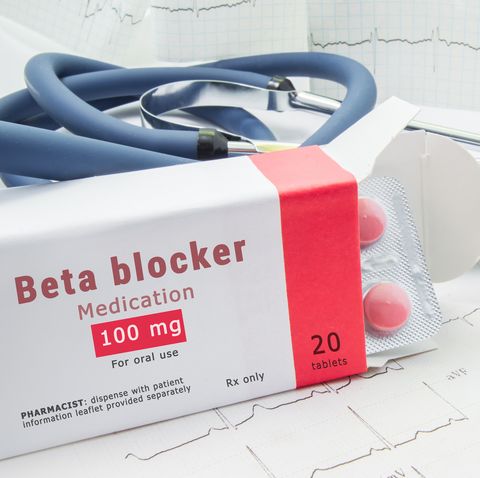Beta blockers are a class of medications commonly prescribed to treat various cardiovascular conditions. Here’s information about their uses, benefits, common symptoms, and potential side effects: Beta Blockers Tablet Uses Benefits and Symptoms Side Effects

Uses and Benefits of Beta Blockers:
- Hypertension (High Blood Pressure): Beta blockers are frequently used to treat high blood pressure by blocking the effects of adrenaline on the heart and blood vessels, thus reducing heart rate and relaxing blood vessels.
- Angina: Beta blockers can help relieve chest pain (angina) by reducing the workload on the heart and improving blood flow to the heart muscle.
- Arrhythmias: Beta blockers are used to control abnormal heart rhythms (arrhythmias) by slowing the heart rate and regulating electrical signals in the heart.
- Heart Failure: In some cases of heart failure, beta blockers may be prescribed to help improve heart function and reduce symptoms.
- Migraine Prevention: Beta blockers can be used for the prevention of migraines, possibly by reducing the sensitivity of blood vessels and decreasing the frequency and intensity of migraine attacks.
- Anxiety Disorders: Certain beta blockers, such as propranolol, are sometimes used to manage symptoms of performance anxiety or social anxiety disorder.
Common Symptoms and Side Effects of Beta Blockers:
- Fatigue and Dizziness: Beta blockers can cause fatigue, drowsiness, or dizziness, especially when starting the medication or adjusting the dosage. It’s important to be cautious when performing activities that require mental alertness until you know how the medication affects you.
- Bradycardia (Slow Heart Rate): Beta blockers can lower heart rate, leading to bradycardia. Monitoring of heart rate is necessary, particularly in individuals with pre-existing heart rhythm disorders.
- Hypotension (Low Blood Pressure): Beta blockers can cause a drop in blood pressure (hypotension) in some individuals. This can result in symptoms such as dizziness, lightheadedness, or fainting. Changes in posture should be done slowly.
- Sexual Dysfunction: Beta blockers may occasionally cause sexual side effects, such as decreased libido or erectile dysfunction.
- Cold Extremities: Beta blockers can sometimes reduce blood flow to the extremities, resulting in cold hands and feet.
- Masking Hypoglycemia Symptoms: Beta blockers can mask certain symptoms of low blood sugar (hypoglycemia), such as palpitations or tremors, in individuals with diabetes. This can make it more difficult to recognize and treat low blood sugar episodes.
- Bronchospasm (in Asthmatic Individuals): Beta blockers should be used with caution in individuals with asthma, as they can potentially trigger or worsen bronchospasm.
It’s important to take
beta blockers as prescribed by your healthcare professional and follow their instructions regarding the dosage and frequency of administration. Abruptly stopping beta blockers can lead to rebound hypertension or other complications, so any changes in treatment should be discussed with your healthcare provider.
Inform your healthcare
provider about any pre-existing medical conditions, medications, or supplements you are taking to ensure the appropriate use of beta blockers. If you have any concerns or experience troubling side effects while taking beta blockers, consult with your healthcare provider for further evaluation and guidance.
Note:
Beta blockers should only be used under the supervision and guidance of a healthcare professional. It is not suitable for self-diagnosis or self-medication.
Beta Blockers Tablet Uses Benefits and Symptoms Side Effects







